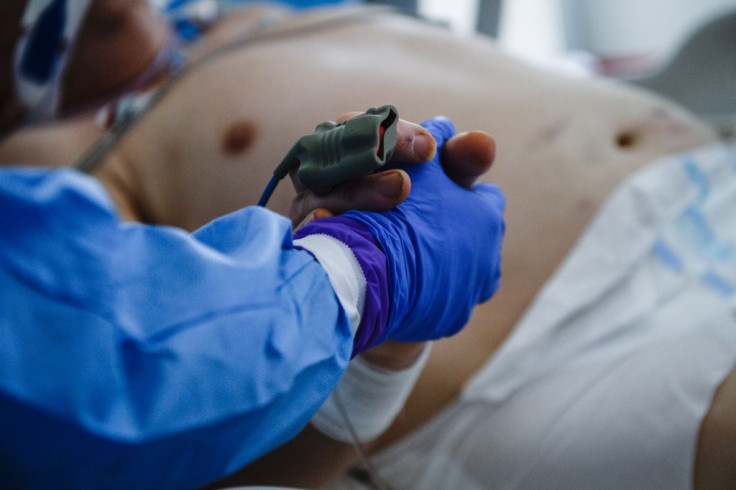Man Paralyzed After COVID-19 Infection Speaks Out, Happy To Be Back On His Feet A Year Later

Lenny LaMarre, a resident of Chicopee, Massachusetts, has triumphed over a rare COVID-induced condition that left him paralyzed, marking a significant milestone in his recovery journey.
LaMarre was diagnosed with Guillain-Barre syndrome shortly after contracting COVID-19, which resulted in complete paralysis from the neck down and the need for a ventilator. After receiving initial treatment in Connecticut, he was transferred to Gaylord Specialty Healthcare in July, where he experienced a remarkable breakthrough and took his first steps after weeks of uncertainty.
Fast forward one year and Lenny recently participated in a 5K race — an achievement that had seemed impossible during his illness. In an interview with 22News, Lenny said he hopes that by sharing his inspiring story, he can instill hope in others facing challenging circumstances.
"Never think that you can't do something. Just keep pushing forward, maintain a positive mindset, and don't let yourself be defeated. Keep going," said LaMarre, emphasizing the importance of mental healing in addition to physical healing.
Lenny attributed his recovery to the unwavering support from his family and friends, as well as the exceptional care provided by his medical team.
While COVID-19 safety practices have become routine for many, public health experts remind people to exercise particular caution in crowded areas during the summer season.
Lenny LaMarre's experience is just one among the estimated 65 million individuals worldwide grappling with the lingering effects of long COVID. Scientists are actively studying the complexities of this condition, which presents long-term symptoms such as headaches, fatigue, and "brain fog."
Updated research underscored the importance of vaccination in reducing the risk of long COVID. A meta-analysis revealed that individuals who received two vaccine doses were significantly less likely to develop the condition compared to those who remained unvaccinated.
In related findings, a recent study conducted by scientists in Madrid, Spain, revealed that even mild COVID-19 infections could lead to a lasting decline in semen quality among men. The research team emphasized that the duration of recovery for sperm quality post-infection remains uncertain and cautioned that the infection could potentially cause permanent damage, even among individuals with mild COVID symptoms.
Published by Medicaldaily.com



























